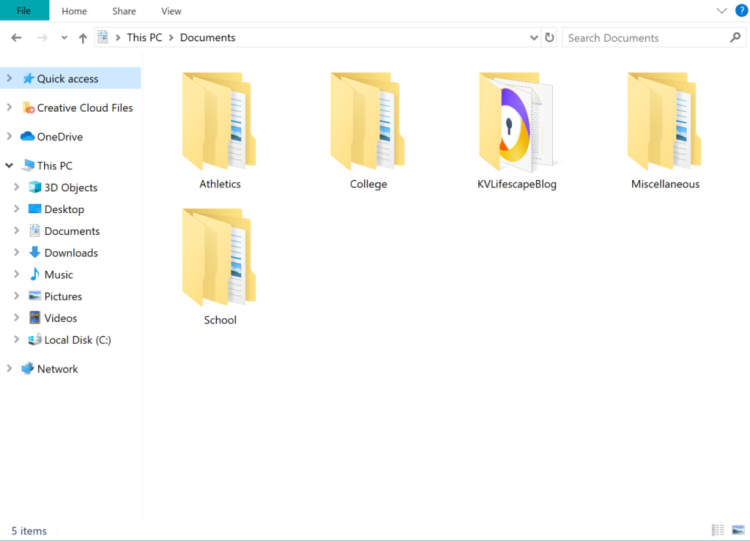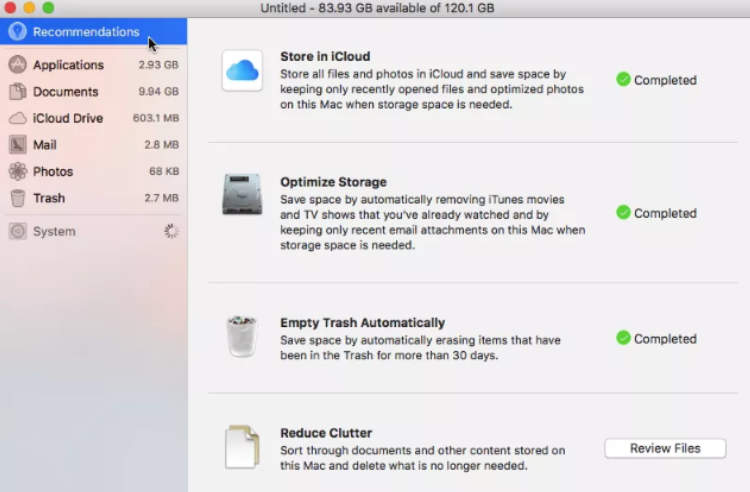An effective way to free up space on your laptop is to optimize your storage and files. Today, many computers are becoming more and more powerful, but with that they come with a large amount of storage space that is quickly filled up. With a few simple steps, you can easily optimize your laptop storage and files and maximize your space.
In this article, you will be guided through the process of optimizing your laptop storage and files. We’ll give you tips on how to organize and store files, delete unwanted apps, and understand what types of files take up the most space. With this knowledge, you can easily and efficiently organize and optimize your laptop storage and files.
Types of Files to Archive
Backup files are essential to help you access important data even in cases of computer failure. Computer backup plays a major role in keeping your files safe. Here, we discuss the types of files that need to be backed up for archiving.
Text Documents
Any kind of text data needs to be backed up , this could include; Word documents, PDF files, leaflets in pdf form, etc. These documents are usually critical in nature and hence need to be backed up.
Images and Photos
Not only text documents, but images and photos also need to be backed up for archiving. Photos stores memories and work related documents could have pictorial representations which would be of importance to the organization. By backing up images, one ensures that they still remain accessible even if the laptop undergoes any problem.
Audio And Video Files
Video files like presentations, and recordings may need to be accessed and shared with other people. Not only work related videos, but personal videos like movies, music etc. also need to be backed up ensuring the content can’t be lost.
Executables
Executable files like applications, drivers, games etc. are usually very important in operating a computer. It is important to backup this kind of data as they are irreplaceable.
Data Files
Data files contain structured information with many fields of data, and if even one is missing, the data loses its effectiveness. These files must not only be backed up, but also converted into an easily viewable format.
And More…
Apart from all these, there are a few other files like emails, Internet bookmarks, address books etc. that need to be backed up for archiving. It is always better to take backup of all these files ensuring data security.
Using Folders to Organize Your Files

Folders are a great way to organize your laptop storage and file system. It’s easy to create a folder and it allows you to store and manage files and documents more efficiently. By creating folders, you can easily navigate through your files quickly and easily. Here are some guidelines on how to use folders to optimize your laptop storage and files.
Create Folders Based on Categories
The most basic and important guideline of organizing your files is to create folders based on categories. This means creating folders with titles such as “Work,” “Personal,” and “School,” depending on the contents of the folder. This way, it’s easier to locate and access files.
Color Coding Your Folders
Another great way to make it even easier to locate and access files is to color code your folders. You can choose different colors for different categories so that it’s easier to remember which folder belongs to which category. This way, you don’t have to search through each folder every time you want to find a certain file.
Naming Files and Folders
When organizing your laptop storage and files, it is also important to create meaningful file and folder names. This will help you quickly identify what folder and file contain, making it easier to find what you are looking for. Here are some tips on naming files and folders:
- Use descriptive words
- Include keywords
- Be consistent with the format
- Avoid using special characters like & or #
Create Backup Copies
When you are organizing your files, it is also important to create backups. This means creating a second copy of each file so that if the original file is lost or damaged, you have a second copy to fall back on. It is important to store the backup copies in a different location so that they are safe from any potential disasters.
Clean Up Your Files Periodically
Finally, it is also important to periodically clean up your laptop storage and files. This means deleting or archiving files that are no longer needed. This ensures that your laptop storage and files remain organized and clutter-free.
Finding & Deleting Redundant Files & Programmes
Having too many files and programmes on your laptop can cause it to run slow. Too much clutter can quickly clog up your laptop’s RAM and take up valuable hard drive storage. In order to keep your laptop healthy, it’s important to remove unnecessary files that are no longer required or taking up too much space. The trick to properly optimizing your laptop’s storage and files is to find and delete redundant files and programmes. Here are few tips on how to optimize your laptop storage and files:
Finding Redundant Files
The most straightforward method to finding redundant files is to perform a scan of your laptop which will reveal all the stored data. The scan will help you determine what types of files are stored and how much space they take up. You can also narrow down the scope of the scan to specific folders or files for more efficient results.
Deleting Redundant Files & Programmes
Once you have identified which files and programmes you no longer require, you can begin the process of deleting them. Start by emptying your Recycle Bin first. This will remove any deleted files that have been stored there. Next, open up your File Explorer to delete any unnecessary files you have identified. You should also consider uninstalling any unnecessary programmes that you no longer use.
Tips to Optimize Your Laptop Storage and Files
- Delete any redundant or temporary files periodically.
- Uninstall any software and programmes that are no longer needed.
- Manually empty the Recycle Bin.
- Backup your important files on an external hard drive or cloud storage.
- Upload your photos and videos to online photo or video sharing platforms like Google Photos and YouTube.
- Organize your files into logical folders so you can quickly find what you need.
Finding and deleting redundant files and programmes is a great way to optimize your laptop storage and files. By deleting unnecessary files and programmes, you will be able to free up memory and hard drive space, allowing your laptop to run more smoothly and efficiently. It’s also important to regularly backup important files to an external hard drive or cloud storage for an extra layer of protection. Following these tips can help you keep your laptop healthy and making the most of its storage.
Conclusion
Optimizing your laptop storage and files is essential to ensure you have a smooth and productive experience with your machine. You should take the time to regularly back up your system and organize files and folders in an effective way. Additionally, using cloud storage can help improve your storage situation even further. With these guidelines, you can ensure that your laptop remains in top condition in the long run.
Overall, by following these guidelines, you can improve the performance of your laptop through effective management of your storage and files. With regular maintenance and the implementation of these simple steps, you can ensure your laptop will remain in top shape for a more enjoyable user experience.






Leave a Reply